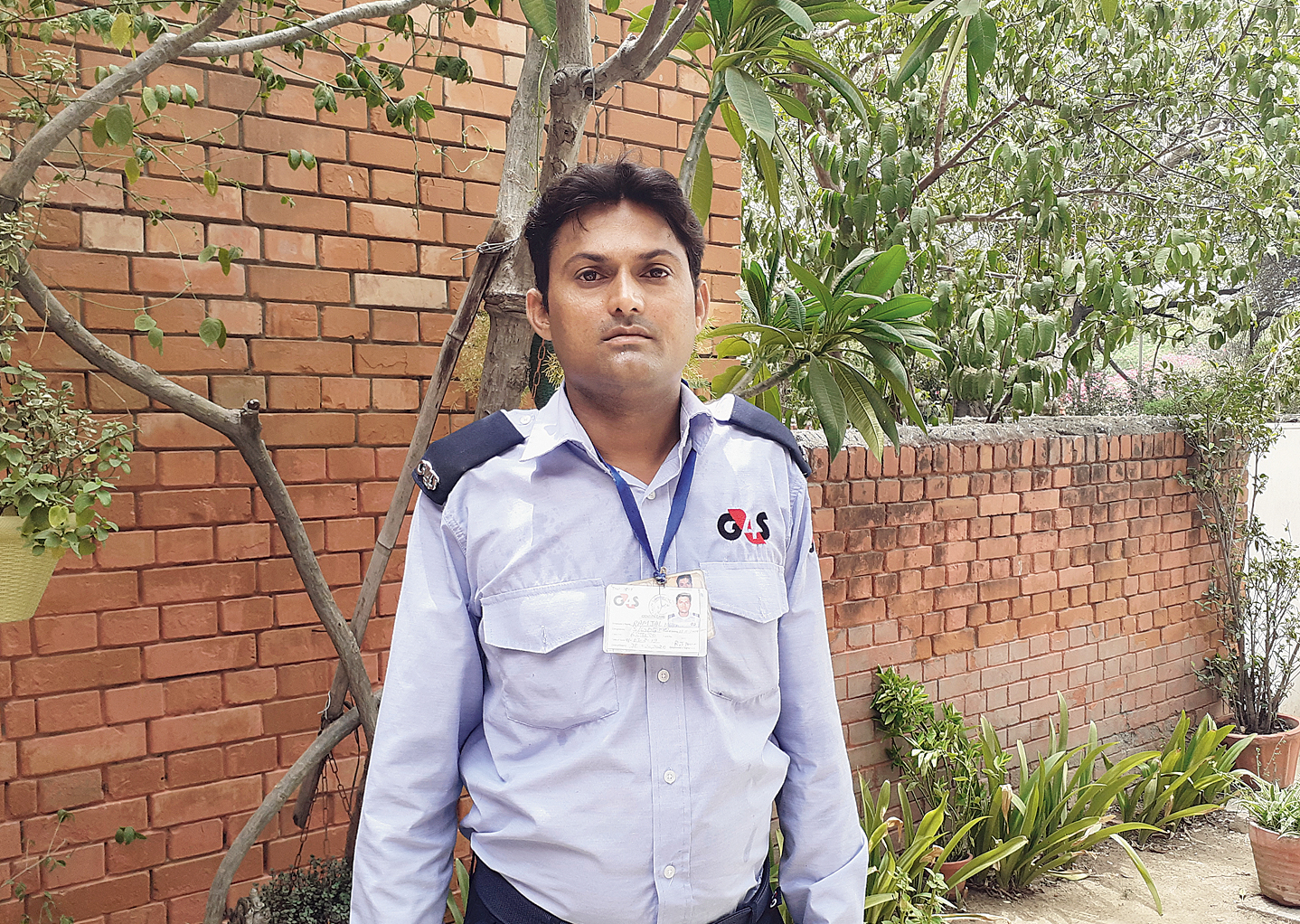Ramjal Meena takes half-hour rounds at night on Jawaharlal Nehru University’s campus.
After each round he sits at his post with one eye on a book or a mobile screen and the other on the lookout for trespassers and his supervisor. The latter has cost him more than any burglar.
“The penalty for being caught reading, or not being alert on duty, is Rs 2,000 and a three-day suspension. But I need this job, and I also need to read,” says Meena, a security guard from G4S, the private security contractor for the university.
He prefers the graveyard shift, which allows him to “study in peace”. It helped him clear JNU’s entrance test for the BA course in Russian last week.
On every shift the 33-year-old reads eight to 10 pages — from books and e-books collected from students and teachers, as well as some that he has bought.
Several guards at JNU do prepare for government jobs, and at least one is known to have cleared the university’s entrance test for a certificate course in Pashto. Meena, though, is the first known guard here to have secured admission to a degree course.
This switch — from a guard who has held the line through several student protests to a student in the same university — has filled the father of three and his wife with excitement as well as apprehension for the future.
Varsity regulations do not allow full-time students to work; nor are the employees, even contractual ones, permitted to have any other full-time engagement, JNU officials confirmed. Meena has not figured out yet what he will do to survive after the formalities of his BA admission are completed.
His wife has no gainful employment, either. Several students are known to take up part-time teaching appointments during their PhD, and language students often work as translators and tour guides at weekends.
Meena, a native of Bhajera village in the Rajasthan district of Karauli, says he started working young “to get my three sisters married”.
“But I kept studying too,” he adds. “I dropped out of a BSc course in biology in 2004, soon after marriage, and worked as a day labourer with my father in Karauli.”
His life changed when he travelled to Jaipur in 2006 to enrol in a distance-education BA course with Rajasthan University, and found a queue of young men before the G4S office near the cantonment. He has been a security guard with the multinational ever since.
“Wage labour pays Rs 60 to Rs 70 a day but the boys there told me one could earn Rs 150 to Rs 200 a day in this job — and still find time to study.”
Meena now earns Rs 15,000 a month, with provident fund benefits. After joining G4S, he guarded offices in Gurgaon and Rajiv Chowk Metro station in Delhi before getting the contract to work at JNU in 2014.
Soon after, he brought his wife and children to Delhi, where they live in a single-room flat in Munirka village, opposite the university. His earnings also sustain his parents, landless Meena tribal folk in Rajasthan.
“The Delhi government schools are great. My daughters study in the Hindi section of the Sarvodaya Senior Secondary School, Munirka, as they had begun their education in the Hindi medium,” Meena says.
“But the youngest, my son, is in the English section and is now in Class IV. Their life will be better than mine. I want them all to be educated enough to study at JNU. I must keep working to make that happen.”
He recalls his struggle for higher education: “I failed many papers but eventually earned a BA in Hindi literature, history and political science in 2018 (through a correspondence course from Rajasthan University). I’m now doing an MA in political science, which helps me prepare for the civil services exam.”
Meena attempted the Union Public Service Commission’s preliminary exam for the civil services in June but couldn’t complete the paper. His android phone is filled with applications for government exams and news apps.
His reason for doing another BA is to increase his options. He has also cleared the BEd entrance test with a Bikaner college but wants to study Russian instead.
Meena hasn’t decided whether to continue with his distance-education MA course after enrolling for the BA course in Russian with JNU.
“Currently my only hope is to clear a government job exam. If I have a degree in Russian, I can do so many other jobs, such as translation,” he says.
“I admire Vladimir Putin, and I’m interested in Russia’s armed forces. Working in JNU, I know there are good teachers here and my future can change if I study well.”
Meena has seen it all — the police crackdown on the allegedly seditious sloganeering in 2016, and the student resistance that followed; the agitation after a student disappeared following a clash with Sangh student activists the same year; the strikes against seat cuts; the continual public airing of rage against the Narendra Modi government.
“We guards do our job of providing security whenever there is a gathering; we don’t concern ourselves with politics,” Meena says.
“I myself have taken a few falls in scuffles during protests. Outside, I hear people saying things about JNU on buses and trains. But I know the truth, and have seen how nice people here are.”











